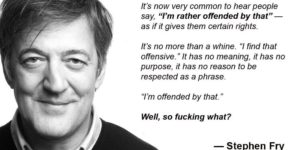Did you catch the article on LinkedIn by Lydia Abbot, The Top 10 Words Recruiters Use to Describe Themselves? If not, go check it out. Lydia is a content marketer for LinkedIn and she puts out some good stuff based on inside data LI data.
In this piece, she basically gave us the Top 10 words recruiters use to describe themselves (based on LI data):
I’ve been a recruiter for a long or worked in talent acquisition for a long time. I think I would say most of these words are pretty good. I want my recruiters to be experienced, skilled, passionate, motivated, etc.
The number 1 word is “Specialized”, it’s also the number 1 word that recruiters describe themselves, that’s almost always a lie!
“Specialized” isn’t really a word recruiters want to use to describe themselves. It’s the word that “You” want them to use to describe themselves!
Here’s what happens. You have a super important opening to fill. The leader of that group wants to ensure ‘you’ don’t screw it up. Since you don’t have anyone on your team that ‘specializes’ in the function of this position, she wants you to use an outside firm. A recruiter who ‘specializes’ in the function of this position.
The reality is, there are a few actual recruiters who “specialize” in certain functions. My friend, Stacy Zapar specializes in filling corporate Recruiter positions at The Talent Agency. That’s all she works on. I know a guy in North Carolina who specializes in filling PCB Engineering openings in the Aerospace industry. Those are the only positions he works on, period. That’s specialization.
If you fill “IT” openings or you fill “Accounting” openings. You aren’t a specialist. You don’t have specialization.
Recruiters will tell you they are specialized because that is what you want to believe, but 99% of recruiters are not specialized. They might enjoy a certain focus, like Nursing, or Engineering, or Designers, etc. But those are still very broad fields!
Corporate Hiring Managers and Corporate Talent Acquisition want to believe the recruiters they are using, or the recruiters they are hiring, are specialized, but they’re not. It’s not that they’re lying, it’s that it doesn’t really matter!
My company mostly works on recruiting positions in Engineering and IT. The reality is we train our recruiters to “Recruit”. Give them an engineering opening and they’ll kill it. Give them a Human Resources position to fill and they’ll kill it. If you can recruit, you can recruit.
Does specialization help? It can, if the recruiter is truly specialized. If you have a pipeline of very specific talent. The reality is less than 1% of recruiters will ever even come close to true specialization, yet it’s the #1 word we use to describe ourselves!
So, what do you really want out of a recruiter if we don’t need specialization? Experience for sure helps. The reality is the best recruiters take an interest in the position, the hiring manager, the department, and the company. They’re passionate about the position and can convey that to candidates. Also, they have the skill to uncover and track down talent others can’t.
In recruiting, specialization is oversold and overrated. Whereas actual sourcing and recruiting skills are underrated because we as recruiters do a terrible job of showing how a skilled recruiter is better than an unskilled recruiter!



